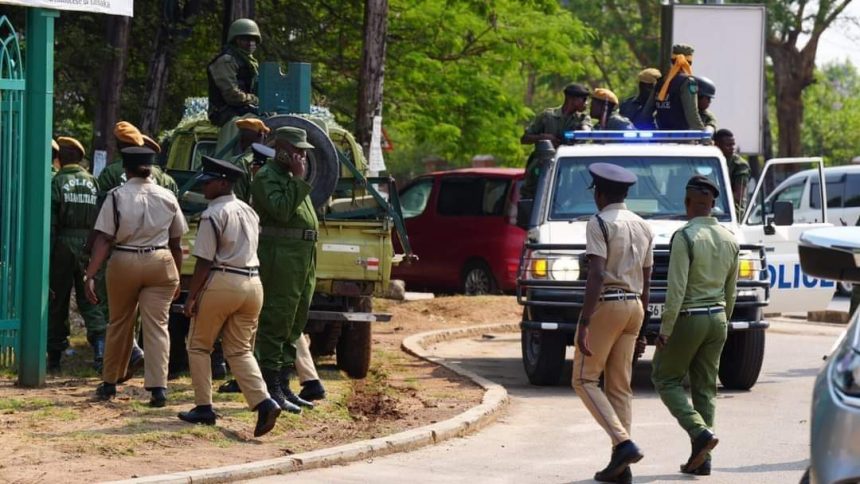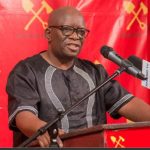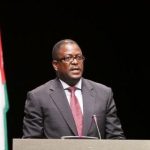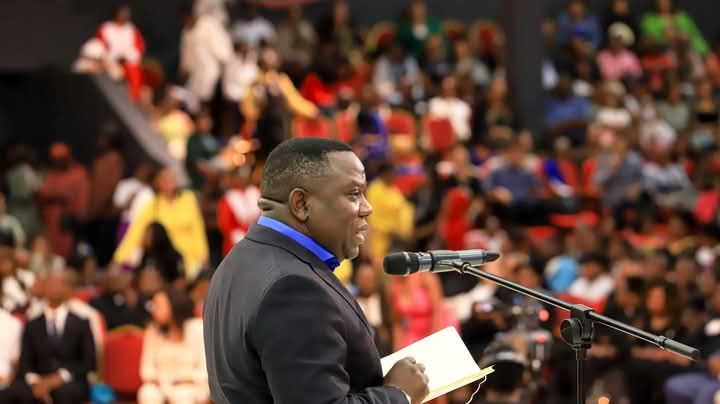By Thandiwe Ketis Ngoma
Zambia is facing a disturbing shift that threatens the basic freedoms its people once took for granted. Evidence of an authoritarian regime is mounting, as civil liberties are eroded, dissent is increasingly stifled, and state machinery is instrumentalized to control rather than serve the public. Known for its democratic ideals, Zambia now exhibits alarming symptoms of a police state. Here are the key reasons why this authoritarian drift is not only concerning—it’s dangerous.
1. Suppression of Freedom of Worship
On October 28, 2024, in Lusaka, police officers in full riot gear stormed the Cathedral of Christ the King. Their mission was clear: disrupt and intimidate those attending a peaceful memorial for former President Michael Chilufya Sata, including members of the Patriotic Front (PF). This aggressive intrusion into a place of worship not only violated the sanctity of a religious space but was a blatant infringement on the right to worship freely.
This wasn’t an isolated event. In Kabwe, police barged into a Catholic bishop’s office where former President Dr. Edgar Lungu was meeting with the bishop, justifying their intrusion with the assertion that Dr. Lungu “wasn’t supposed to be there.” These incidents reveal an alarming trend: authorities encroaching upon religious spaces that should be free from interference. When spiritual gatherings are disrupted and religious freedoms trampled, the authoritarian intentions become disturbingly clear.
2. Escalating Harassment of Political Opposition
The state’s treatment of opposition parties has crossed into outright repression. The PF has recently been blocked from accessing its own secretariat, obstructed from holding routine meetings, and prevented from laying wreaths at a memorial for their founding leader, President Sata. Such actions are not just suppression—they are a calculated attempt to erase the party’s contributions and silence opposition voices.
This level of interference exemplifies the tactics of authoritarian regimes that seek to consolidate power by suppressing any form of dissent. When a government actively prevents peaceful acts of remembrance and free political assembly, it is enforcing silence, erasing history, and controlling the narrative, all of which are fundamental characteristics of a police state.
3. Unlawful Detentions and Misuse of Legal Authority
The state’s misuse of police power extends to arbitrary arrests and unlawful detentions, undermining trust in Zambia’s justice system. Investigative journalist Thomas Zgambo was held for 16 days despite meeting bail conditions. Activist Jason Mwanza and his colleagues, detained after a peaceful protest, were held for nearly two weeks after fulfilling their bond requirements. The Kaumba brothers were kept in custody for 26 days without family access, joining a growing list of individuals detained without due process, including political figures like Raphael Nakachinda, Emmanuel Mwamba, Dr. Fred Membe, and Edith Nawakwi.
These actions reveal a dangerous shift from enforcing the law to weaponizing it against the public. Detentions without accountability expose a clear agenda: to silence critics and instill fear. When the rule of law is sacrificed to wield police power as a tool of repression, the integrity of a democratic society collapses.
4. Alarming Indifference from Leadership
Recent statements by the Vice President in parliament attempted to deflect blame for police misconduct by claiming that the President cannot be held accountable if police disregard his orders. This excuse is not only weak—it’s profoundly irresponsible. As Commander-in-Chief, the President is responsible for the conduct of law enforcement; any defiance of his directives by police should be met with swift accountability.
If police actions continue to contradict the President’s public statements, it signals a troubling lack of leadership and control within the government. The President’s silence in the face of escalating police overreach suggests complicity or a failure of authority. Accountability must start with the Inspector General of Police, whose unchecked power continues to threaten citizens’ rights and freedoms. Leadership that shirks responsibility for maintaining democracy’s basic safeguards is leadership that paves the way for authoritarian rule.
5. Militarization and Intimidation as Tools of Control
Zambia’s police force is becoming increasingly militarized, transforming peaceful assemblies into scenes of intimidation. Armed in full combat gear, police arrive not to manage crowds, but to control and intimidate. This unnecessary show of force at public gatherings discourages citizens from assembling, voicing concerns, and exercising their democratic rights.
In a democracy, citizens must feel secure in expressing their views and protesting peacefully. When the state uses heavy-handed policing to instill fear, it effectively silences the public and stifles any form of lawful protest. This militarization turns Zambia into a space where silence is forced rather than chosen—where fear, not freedom, prevails.
6. Intimidation Extending to Journalists and Civil Society
A free press and an active civil society are critical to any democracy. In Zambia, however, journalists and activists now operate under constant surveillance, harassment, and intimidation. Journalists like Thomas Zgambo, detained without just cause, and human rights advocates such as Brebner Changala face threats meant to silence them. When civil society organizations and activists are targeted, Zambia loses its public watchdogs and, with them, a key check on government power.
Without an independent press and a vocal civil society, citizens lose access to truthful, unfiltered information. They are left to rely on narratives controlled by those in power. This suffocation of public discourse and accountability is another clear indicator of a shift towards authoritarian rule.
Conclusion
Zambia stands on the brink of authoritarianism, with unmistakable symptoms of a police state already evident. Suppression of worship, harassment of the opposition, arbitrary detentions, and systemic intimidation paint a grim picture of a regime prioritizing control over democracy.
Zambians deserve a government that respects their rights, values their voices, and upholds the rule of law—not one that manipulates it to instill fear and entrench power. To restore democracy, immediate reforms are needed to establish accountability, protect civil liberties, and rebuild trust in the rule of law. While the path back to democracy will require resilience and determination, it is crucial for Zambia’s future as a just and free society.
You Might Also Like
Kalaba Maintains Lead in PF Dominated EMV Polls
By the Independent Political Correspondent Wednesday, 25th February, 2026 In what many political observers are calling a significant barometer of…
5 Min Read





